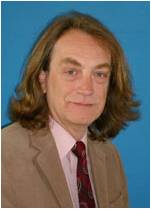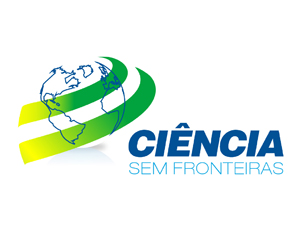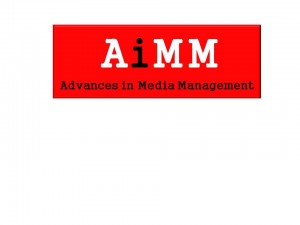 It is a while since I last posted anything on the blog having been busy working on our new strategic plan currently out to consultation. With this in mind and the imminent deadline for the PhD Studentships competition I thought I might share some ideas about writing the perfect proposal. There is nothing very special about this insight, just a few reflections which might help or at the least may amuse.
It is a while since I last posted anything on the blog having been busy working on our new strategic plan currently out to consultation. With this in mind and the imminent deadline for the PhD Studentships competition I thought I might share some ideas about writing the perfect proposal. There is nothing very special about this insight, just a few reflections which might help or at the least may amuse.
In my experience research grants tend to fall into two broad categories, namely: (1) concise bids often consisting of just one or more pages like the BU Studentship competition; and (2) complex bids, with longer cases of support. The art of writing each type of proposal is different and we will concern ourselves here with the former rather than the latter. The aim is answer a series of specific questions with a few carefully selected words making a cogent case.
You may remember if you are of a certain age the cereal box competition “paint a picture or design a box lid and then in just eight words explain why you love Weetabix!” These types of competitions always used to frustrate me because irrespective of how good your artwork was, and your mum would always tell you that it was super, you still had to write something snappy! And as a kid I didn’t like writing much and snappy has always alluded me. I view short, one page bids in the same way and with distaste. You get just 300, or at most 500, words to make your case. Slightly more than eight but I am sure we will all agree not enough! Writing such proposals is a skill and like all skills needs practice, but in the hands of a master becomes an art. Now I don’t claim to be a master but the process starts like most things with a great idea, and complete clarity as to how it should unfold and be delivered. It is the clarity of thought that is the key to being concise and I suppose is the real test of art.
The current competition for BU Studentships is a case in point and with the deadline imminent I thought I would share a few personal reflections on the art of the concise bid. You have a generous 500 words with which to make the case for a studentship plus various supplementary opportunities to clarify specific points. The starting point for me in writing such a bid is clarity around what the aims and objectives of a project are, and ultimately its tractability. Having a clear understanding is critical and I personally start by writing it all down in note form, or talking it through with a colleague in order to have a good grasp of the arguments one could deploy. Test it, view it from all angles and select your pose and line of attack with care. When I start to write I try to stick with the: wow, what, why, now, how and impact scheme of things. Now if I had a way with words I would be able to turn this into some form mnemonic but I haven’t so we will have to stick with ‘WWNHI’. The wow matters and starts with the title because you want to entice your reader to read on. Most assessment panels of this sort consist of learned academics or lay readers without necessarily having your subject specialism. If you turn them off in the first line, they won’t read on. It is like the headline and lead sentence of a newspaper article; its got to grab the reader and compel them to read on, so they do in fact read. So should your title and opening few lines, so with this in mind the wow factor matters! The what then follows in order of priority. What is that you propose to do and how can you say this in a few concise words or a sentence or two at most? You might propose a major problem in the ‘wow’ and the ‘what’ is your solution for example. Some academic like to state this as an aim others as the answer to a question, but however you do it you need to be clear about what it is that you will deliver. Avoid lengthy lists of objectives and goals and remain focused on the primary goal.
The why and the now tend to collide thereafter. Why is it important and why must it be studied now rather than at some point in the future? Why is timely, topical or urgent? Again a few concise lines should be sufficient to serve, cross referenced to a few key references. Now there is no need to show off your erudition by citing the whole of your library, but a few choice references help assure the reader that you are a master of the relevant literature and that it has not all been done before! You want to always avoid the idea that it has all been done before at all costs, but also you need to be authentic to the reality of research in your chosen area. We are on a roll now and have probably used up may be 150 to 200 of our words at most and we are ready for the how. The key issue here is to demonstrate that a problem is tractable and in the case of a studentship, that you have access to the resources or data required. That above all else it is deliverable by your chosen student and in three years not a life time of servitude! This is not another place, however, to show off your erudition and understanding of research philosophy or approach; save it for that great methods paper you wish to write sitting in the garden this summer. The key here is to demonstrate that your approach is well tried or novel/original and will address the questions posed in a timely manner.
We probably have used up another 100 or 150 of our precious words and are ready to deliver the final punch – fund this and you will deliver the earth! What will the return on the investment be? What is the impact of the proposed research? How will it change the world for the better? Now your research may only have academic impact, but if you can demonstrate societal impact so much the better. The key is to be specific, concise and not to promise the impossible but be authoritative about the return on investment you will and can provide. In the case of the BU Studentship form there are specific sections later in the form for you to document this in more detail, so confine yourself to a few well-chosen sentences that complete your case and compel the reader to give the funding you seek.
All of the above can be done in as little as 300 words, you have 500 on the studentship form so use them wisely and whatever you do don’t use them for the sake of it. This is definitely one of those case where less can be more. One final piece of advice ‘you should not be able to see the brush strokes in the final piece’. What I am saying is that if you use WWNHI well, no one should be aware that you have followed the magic formula at all. My final parting shot is to say that unless you have clarity of thinking you won’t have clarity in your prose so don’t start to write until you have it all worked out and have viewed it from every angle and worked out the best way to sell your idea. And yes it is about selling your idea to the assessment panel. They won’t just recognise your genius. Like any art its needs practice and careful work and I for one don’t profess to be an expect. Whatever your colleagues may say in bravado a proposal is not something that can be dashed off the night before the deadline whatever you may think and assessment panels are never understanding or willing to cut you slack. Write it, hone it, re-write it, seek comments on it, re-write it some more and perfect it and then send it in with a wink and a prayer. Good luck!
Matthew
 My EUNF application relates to one aspect of a program of research that is in the early stages of development. Over the past few years I have been working with a colleague on the development a theoretical framework that describes how people adapt to living with HIV. Named the ‘Theory of Negotiating Uncertainty’, it is a potentially important clinical assessment theory that promises significant social benefit for people living with a wide variety of chronic conditions (such as HIV, sickle cell disease, multiple sclerosis, hepatitis, congestive cardiac failure, asymptomatic genetic predispositions to a variety of disorders such as breast cancer). Concurrent developments of the theory include multi- and cross-cultural testing and the construction of an assessment tool that can be used to assess how people cope with clinical uncertainty that in turn creates significant threats to wellbeing and quality of life. Psychological and other therapeutic interventions can be initiated for those who are found to be unable to effectively negotiate the uncertainty of their lives, thus ultimately improving wellbeing and quality of life.
My EUNF application relates to one aspect of a program of research that is in the early stages of development. Over the past few years I have been working with a colleague on the development a theoretical framework that describes how people adapt to living with HIV. Named the ‘Theory of Negotiating Uncertainty’, it is a potentially important clinical assessment theory that promises significant social benefit for people living with a wide variety of chronic conditions (such as HIV, sickle cell disease, multiple sclerosis, hepatitis, congestive cardiac failure, asymptomatic genetic predispositions to a variety of disorders such as breast cancer). Concurrent developments of the theory include multi- and cross-cultural testing and the construction of an assessment tool that can be used to assess how people cope with clinical uncertainty that in turn creates significant threats to wellbeing and quality of life. Psychological and other therapeutic interventions can be initiated for those who are found to be unable to effectively negotiate the uncertainty of their lives, thus ultimately improving wellbeing and quality of life.







 It is a while since I last posted anything on the blog having been busy working on our new strategic plan currently out to consultation. With this in mind and the imminent deadline for the
It is a while since I last posted anything on the blog having been busy working on our new strategic plan currently out to consultation. With this in mind and the imminent deadline for the 


 I am delighted to be able to congratulate Richard Berger and Bronwen Thomas / Julia Round in the Media School for being awarded grants from the AHRC! Congratulations – this is a huge success and a great achievement for the University.
I am delighted to be able to congratulate Richard Berger and Bronwen Thomas / Julia Round in the Media School for being awarded grants from the AHRC! Congratulations – this is a huge success and a great achievement for the University. Good luck to Richard Stillman (ApSci) with a bid to Darts Farm, Fabian Homberg (BS) for submitting a bid to the Intellectual Property Office, Martin Kretschmer (BS) for submitting a large bid to the AHRC, Carol Bond and Marilyn Cash (HSC) for a bid to Bournemouth and Poole PCT to evaluate the implementation and use of RISC software, Anthea Innes and Michele Board (HSC) for a bid to the NIHR, Tim Darvill and Bronwen Russell (ApSci) for a bid to English Heritage to continue the AIP project, Christos Gatzidis (DEC) for a bid to the European Commission, Carrie Hodges (MS) for submitting a bid to the British Academy to investigate transforming promotional cultures, Stephanie Farmer (MS) for a collaborative bid with Bovington Tank Museum to REACT, Jenny Piesse (BS) for a bid to the ESRC’s follow-on fund, Martin Kretschmer (BS) for an FP7 bid to the European Commission, Anthea Innes, Edwin van Teijlingen, Sarah Hean, Marilyn Cash, Fran Biley, Lee-Ann Fenge, Helen Buckley (HSC) for a bid to the Joseph Rowntree Society to review risk, trust and relationships in an aging society, Jonathan Parker (HSC) for a bid to the Higher Education Academy’s Doctoral Programme, and finally to Dan Franklin (ApSci) for a bid to NERC’s New Investigator Grant call. Good luck to you all!
Good luck to Richard Stillman (ApSci) with a bid to Darts Farm, Fabian Homberg (BS) for submitting a bid to the Intellectual Property Office, Martin Kretschmer (BS) for submitting a large bid to the AHRC, Carol Bond and Marilyn Cash (HSC) for a bid to Bournemouth and Poole PCT to evaluate the implementation and use of RISC software, Anthea Innes and Michele Board (HSC) for a bid to the NIHR, Tim Darvill and Bronwen Russell (ApSci) for a bid to English Heritage to continue the AIP project, Christos Gatzidis (DEC) for a bid to the European Commission, Carrie Hodges (MS) for submitting a bid to the British Academy to investigate transforming promotional cultures, Stephanie Farmer (MS) for a collaborative bid with Bovington Tank Museum to REACT, Jenny Piesse (BS) for a bid to the ESRC’s follow-on fund, Martin Kretschmer (BS) for an FP7 bid to the European Commission, Anthea Innes, Edwin van Teijlingen, Sarah Hean, Marilyn Cash, Fran Biley, Lee-Ann Fenge, Helen Buckley (HSC) for a bid to the Joseph Rowntree Society to review risk, trust and relationships in an aging society, Jonathan Parker (HSC) for a bid to the Higher Education Academy’s Doctoral Programme, and finally to Dan Franklin (ApSci) for a bid to NERC’s New Investigator Grant call. Good luck to you all!










 New Nepal scoping review on maternal & neonatal health
New Nepal scoping review on maternal & neonatal health Fourth INRC Symposium: From Clinical Applications to Neuro-Inspired Computation
Fourth INRC Symposium: From Clinical Applications to Neuro-Inspired Computation Writing policy briefs
Writing policy briefs Upholding Excellence: The Concordat to Support Research Integrity
Upholding Excellence: The Concordat to Support Research Integrity ECR Funding Open Call: Research Culture & Community Grant – Application Deadline Friday 12 December
ECR Funding Open Call: Research Culture & Community Grant – Application Deadline Friday 12 December MSCA Postdoctoral Fellowships 2025 Call
MSCA Postdoctoral Fellowships 2025 Call ERC Advanced Grant 2025 Webinar
ERC Advanced Grant 2025 Webinar Horizon Europe Work Programme 2025 Published
Horizon Europe Work Programme 2025 Published Horizon Europe 2025 Work Programme pre-Published
Horizon Europe 2025 Work Programme pre-Published Update on UKRO services
Update on UKRO services European research project exploring use of ‘virtual twins’ to better manage metabolic associated fatty liver disease
European research project exploring use of ‘virtual twins’ to better manage metabolic associated fatty liver disease